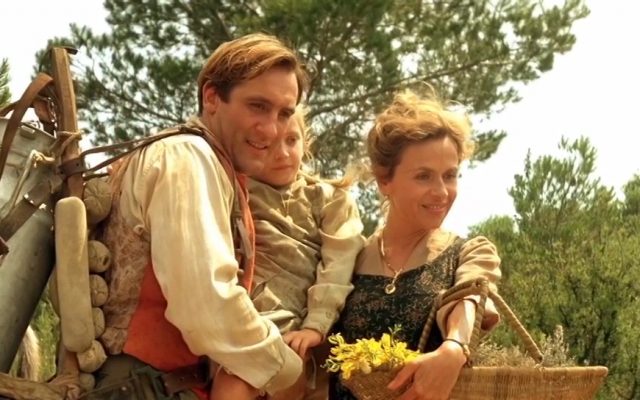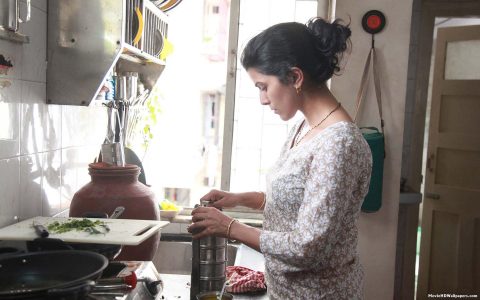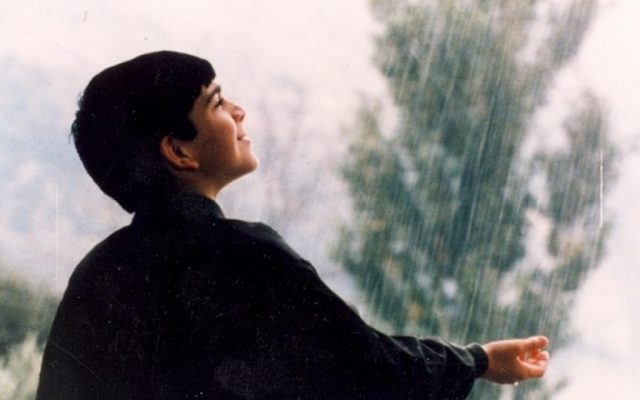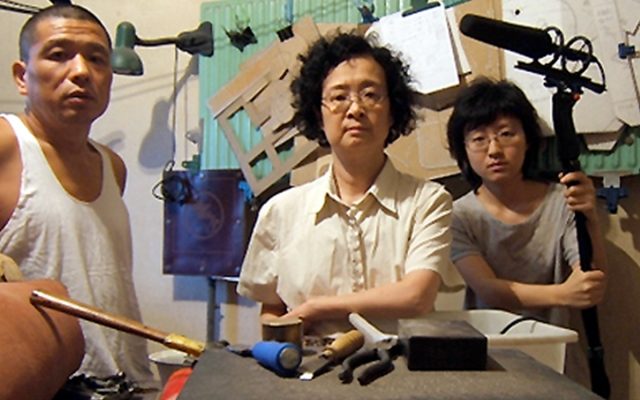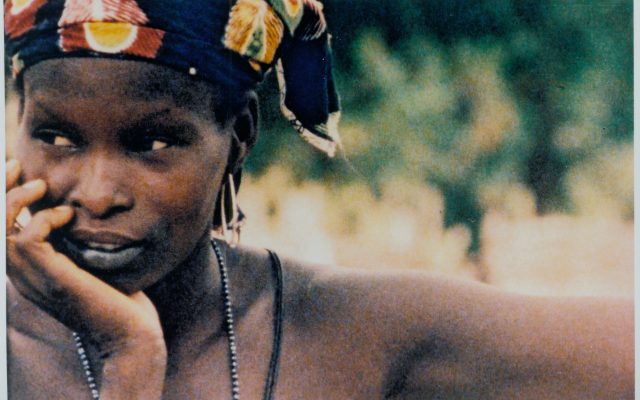Sat 11 April | 6:30pm
Claude Berri Jean de Florette (1986, France, 2hrs) cert PG
French, English subtitles
£3 (£2) | Booking advised
Co-adapted by director Claude Berri from a novel by Marcel Pagnol, this hugely successful French historical drama concerns a bizarre battle over a valuable natural spring in a remote village in Provence. A disreputable old man and his nephew plot to trick their neighbour, a newcomer from the city, out of his newly inherited property. They use every available trick in an attempt to force him from his land, but the novice farmer stands firm.
Sat 28 March | 6:30pm
Ritesh Batra The Lunchbox (2013, India, 1hr 44mins) cert PG
Hindi and English, English subtitles
£3 (£2) | Booking advised
The first of two films selected by Helen Mirra to coincide with Acts for placing woollen and linen at CAMPLE LINE this Spring.
A rare mix-up in Mumbai’s famously efficient ‘dabbawala’ lunchbox delivery system connects Saajan, a lonely widower close to retirement, and Ila, an unhappy housewife who prepares elaborate meals intended to win back her estranged husband’s affection. Together, Saajan and Ila build a fantasy world through notes exchanged in the daily lunchbox.
Sat 2 May | 6:30pm
Mohammad-Ali Talebi Willow and Wind (1999, Iran, 1hr 21mins) cert PG
Persian, English subtitles
£5 (£3) | Booking advised
with an introduction by filmmaker Margaret Salmon
A classroom window is broken and the children cannot concentrate because the rain is getting in. The culprit is not allowed to return to class until he mends the window, so he embarks on an epic mission to transport a pane of glass across the countryside in a howling gale. Glasgow-based filmmaker Margaret Salmon will introduce the screening.
Sat 25 April | 6:30pm
Alice Rohrwacher, The Wonders (2015, Italy, 1hr 50mins) cert 15
Italian, English subtitles
£3 (£2) | Booking advised
A family of beekeepers living in the isolated Tuscan countryside find their household disrupted by the simultaneous arrival of a silently troubled teenage boy taken in as a farmhand, and a reality TV show intent on showcasing the family. Both intrusions are of particular interest to the eldest daughter, 12 year old Gelsomina, who is struggling to find her footing in the world. A richly textured coming-of-age tale and a quietly effective tribute to a vanishing way of life.
Sat 30 May | 6.30pm
Liu Jiayin, Oxhide (2005, China, 1hr 50mins)
Mandarin, English subtitles
£3 (£2) | Booking advised
Daily life in an impossibly cramped Beijing apartment takes on epic proportions in this intimate portrait of a working-class Chinese family. Boldly transforming documentary into fiction, Liu Jiayin cast her parents and herself as fictionalised versions of themselves. With virtually no budget and boundless ingenuity, Liu Jiayin’s debut, shot at 23 years old, consists of 23 static, one-scene shots within her family’s 50 square metre home. Liu keeps her small DV camera in claustrophobic closeness to her subjects, often showing only parts of their bodies as their voices dominate the soundtrack.
Sat 6 June | 6.30pm
Trinh T. Minh-ha, Naked Spaces – Living is Round (1985, 118mins)
English subtitles
Screening on 16mm
With an introduction by Dr Philippa Lovatt
£5 (£3) | Booking advised
Specially selected by Helen Mirra, please join us for a rare 16mm film screening of Trinh T. Minh-ha’s beautiful and compelling Naked Spaces – Living is Round (1985). Naked Spaces explores daily life in the rural villages of six West African countries: Mauritania, Mali, Burkina Faso, Togo, Benin and Senegal. Challenging the authoritative form of the anthropological documentary, it follows a nonlinear structure that builds slowly and poetically through image and sound to reveal patterns of ritual and dwelling, energy and rest, home and work. Trinh has said, ‘Every house in this film is at the same time a tool, a sanctuary, and a world of art.’ Narrated by three women, ‘each voice speaks for a different cultural heritage, a different linguistic logic, and a different way of realising information. The relationship between words and images is, as intended, an uncomfortable one.’

